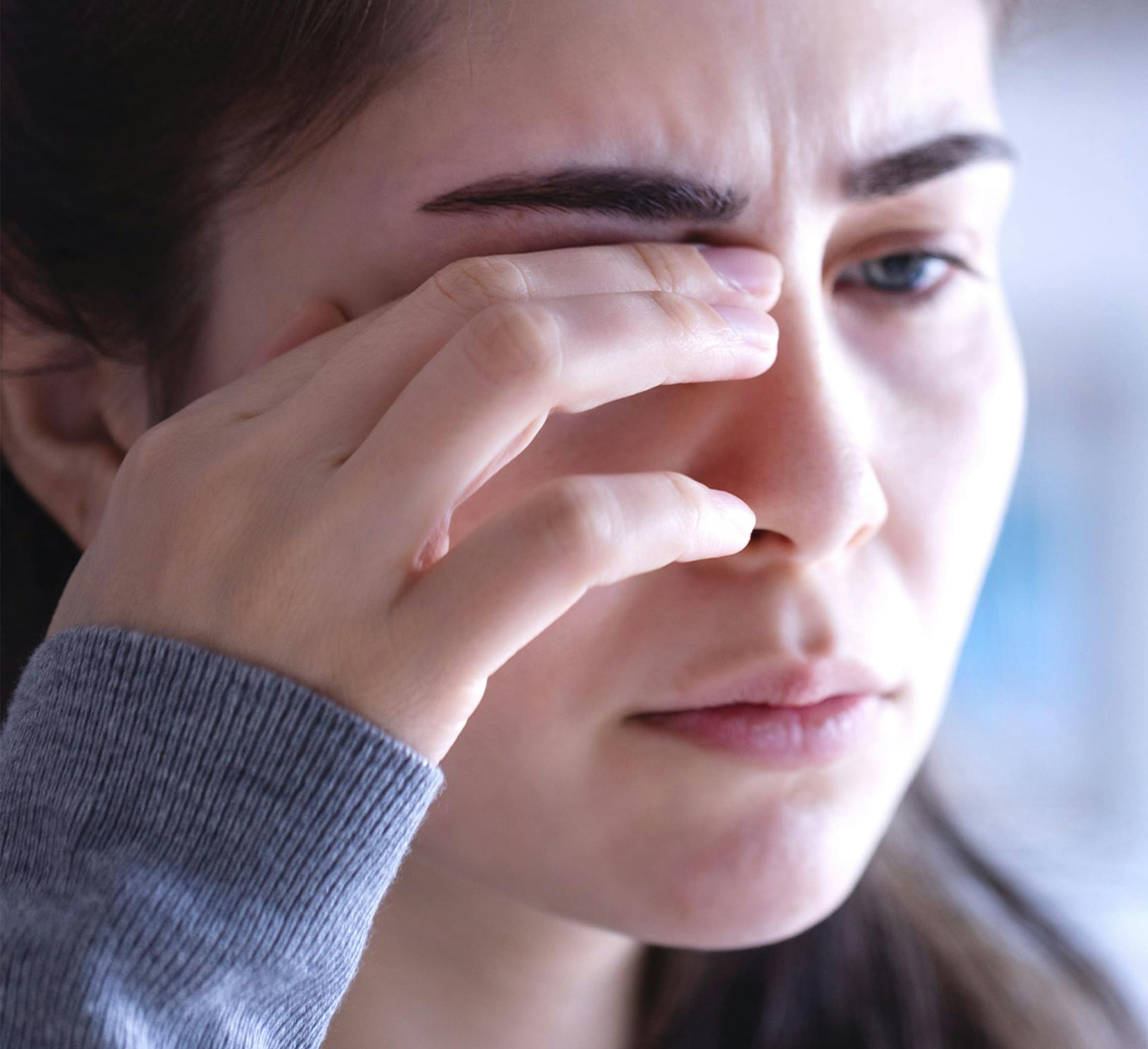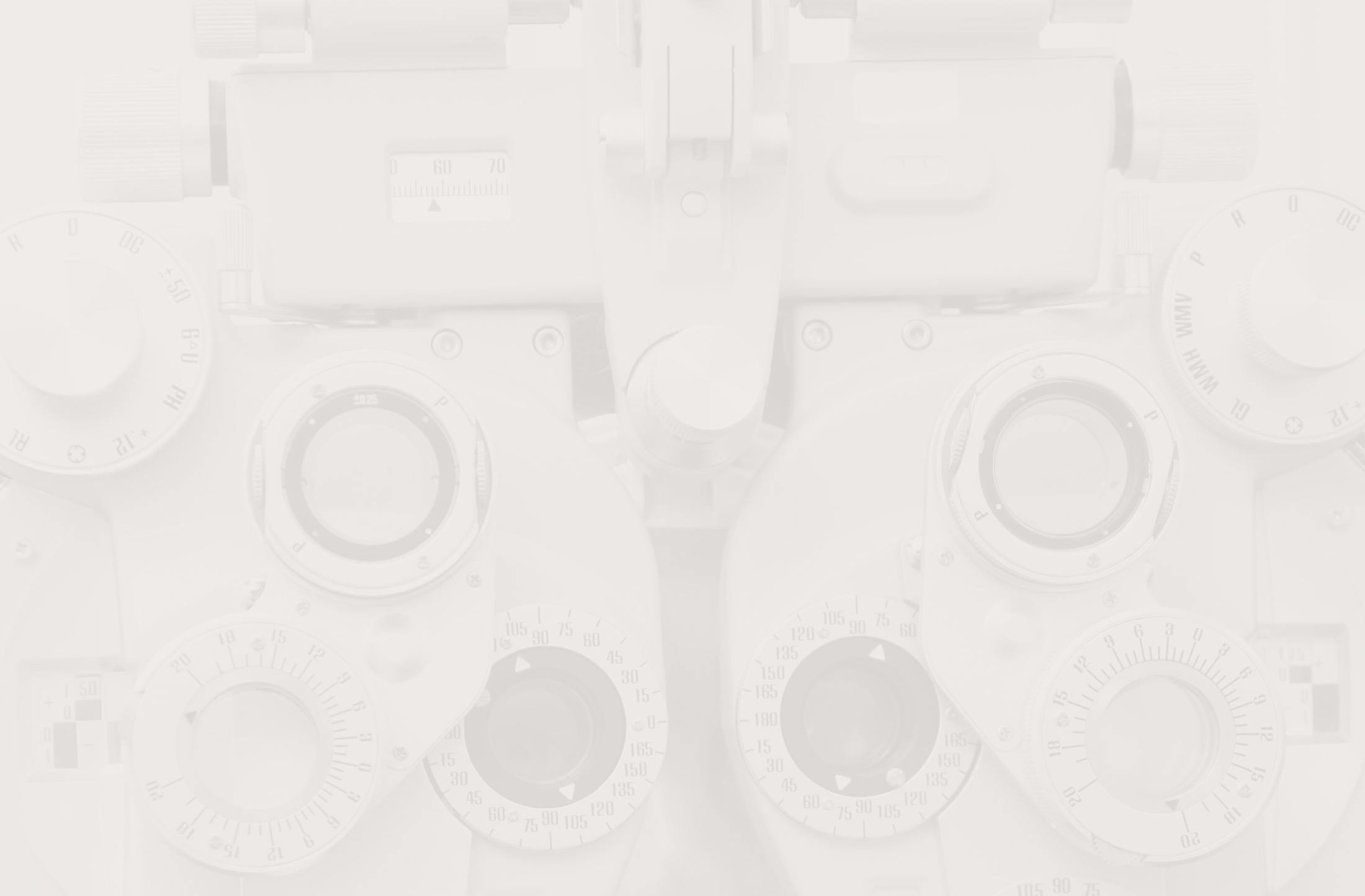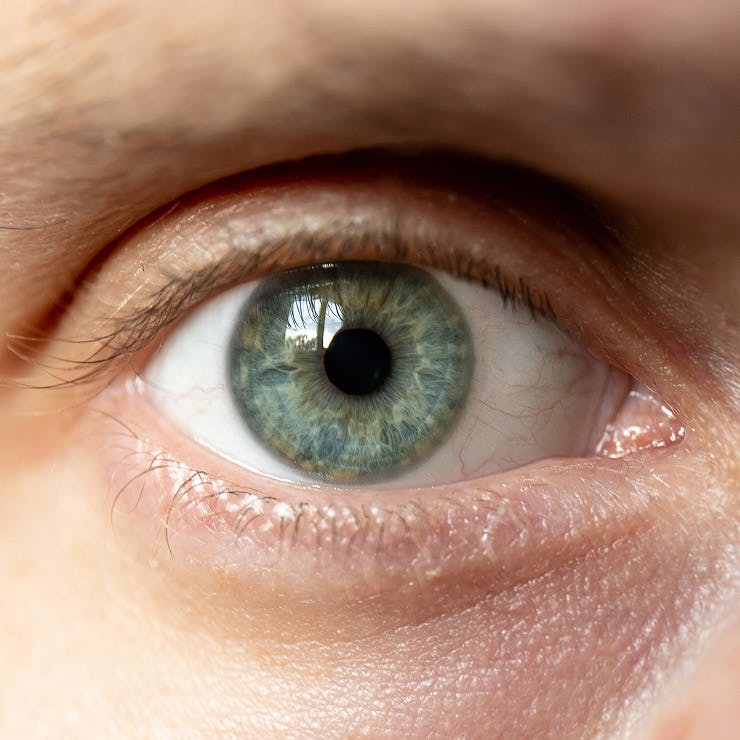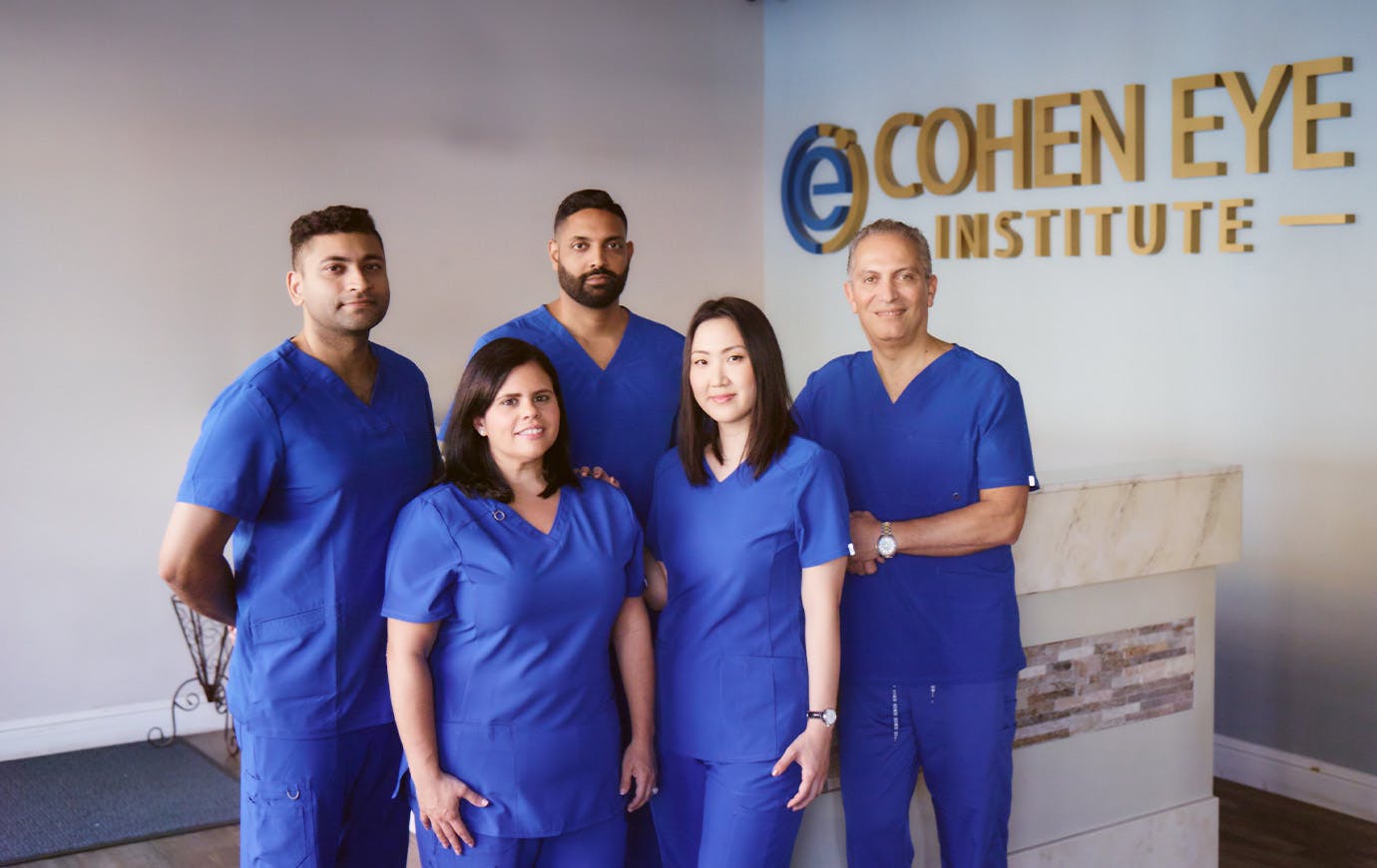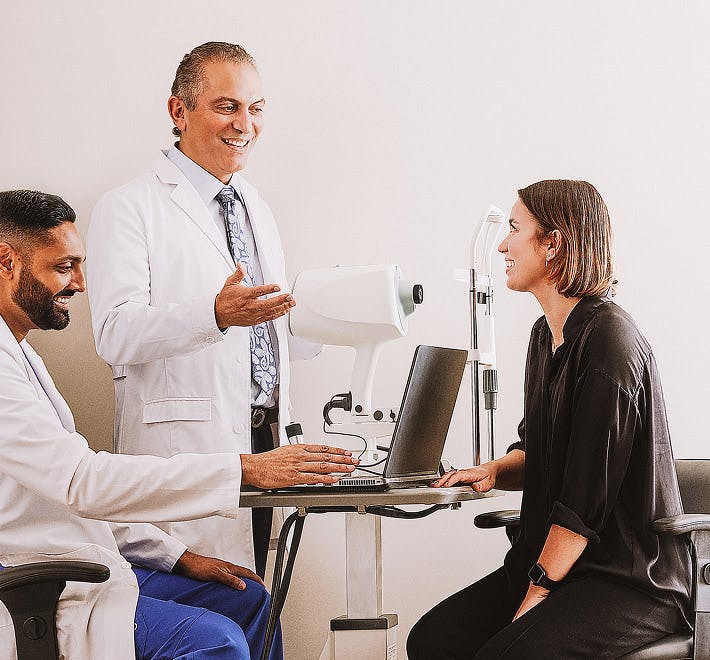Find relief from the constant irritation of dry eye syndrome—and experience the clarity that comes with expert care.
What Is Dry Eye Syndrome?
Keratoconjunctivitis sicca—known as dry eye syndrome—occurs when your eyes don’t produce enough high-quality tears to stay properly lubricated. It may be caused by low tear volume, imbalanced tear composition, rapid tear evaporation, and in many cases, a combination of all three.
Left untreated, dry eye can compromise the surface of your eye, reduce visual clarity, and cause persistent discomfort. That’s why early detection and individualized treatment are so important. Our tools go beyond basic screenings to assess your tear film stability, gland function, and ocular surface health with precision.



